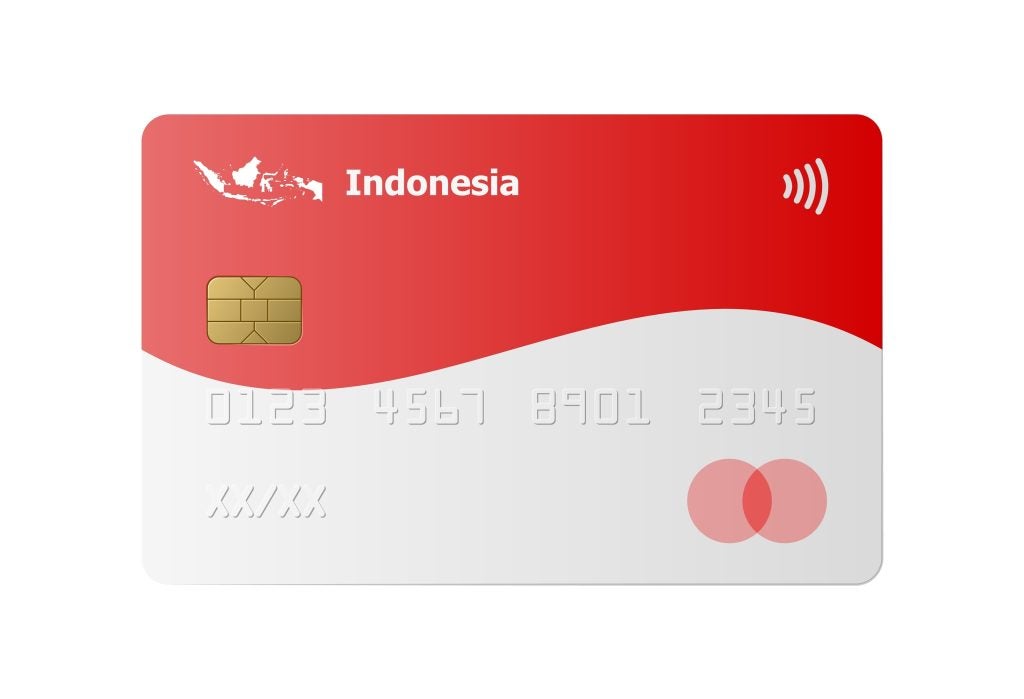Mass payments solutions provider Hyperwallet Systems has undergone a makeover as it has refocused on the B2B market with a simplified product offering and moved away from its origins in C2C remittances. It has also formed a partnership with Western Union Business Solutions, Robin Arnfield reports
Founded in Vancouver, Canada in 2000, Hyperwallet initially provided a low-cost white-labelled online C2C domestic and international remittance platform for Canadian credit unions.
The company subsequently entered the mass payments market, enabling corporate clients to make large volumes of low-value payments to their sales agents, employees and customers around the world.
"We define low-value payments as being up to $3,000," says Jennifer Bond, Hyperwallet’s senior vice president of Marketing.
"Canadian credit unions were our first customer base, and we still have credit unions as customers," says Bond. "But we no longer target the consumer-to-consumer remittance market."
Hyperwallet is particularly strong in the international direct selling market, Bond says. Its direct selling clients include Scentsy, Isagenix and Herbalife and Rodan + Fields Skin Care.
The types of payments made through Hyperwallet include rewards, rebates, incentive payments for market research survey participants, payments to clinical trial participants and commissions to agents.
"We handle vast amounts of commission globally every month. Our corporate clients need to transmit high volumes of low-value payments, often on a recurring basis, both domestically and internationally," says Bond.
How well do you really know your competitors?
Access the most comprehensive Company Profiles on the market, powered by GlobalData. Save hours of research. Gain competitive edge.

Thank you!
Your download email will arrive shortly
Not ready to buy yet? Download a free sample
We are confident about the unique quality of our Company Profiles. However, we want you to make the most beneficial decision for your business, so we offer a free sample that you can download by submitting the below form
By GlobalDataShe continues: "This is a market which banks have traditionally had difficulty in serving. In fact, banks come to us to white-label our mass payment services for their corporate clients."
Bond says the SWIFT messaging system used by banks for international transfers has a number of disadvantages for mass payments. "There is no transparency on fees, and you can’t predict what the end payment amount will be," she says. "The SWIFT messaging system seems to be arbitrary, and there may be lots of up-lift fees depending on the route the payment takes as it passes through different entities. This means a $200 transfer could end up as $160, for example.
"While it might be OK for a single, one-off payment, if you’re making thousands or hundreds of thousands of international payments a month, it isn’t acceptable to not have certainty on the final amount."
Cost-savings
Hyperwallet is able to offer its clients low-cost international remittances, as it maintains local bank accounts in destination countries around the world. London, U.K.-based payment services provider Earthport has a similar operating model.
By using Hyperwallet as their sole mass payments provider, corporate clients who have previously used multiple providers can simply their payment distribution operation and lower their costs, the company claims.
"We don’t use correspondent banks in the SWIFT messaging sense of the word," says Bond.
She continues: "We open our own bank accounts in the Hyperwallet name in local countries so we can connect to domestic ACH networks. Our corporate clients pay us in advance for the amounts they want us to transfer, and we pre-fund our local bank accounts.
"Once we have received the payment file from a client, we pay out in local currencies. This means that we know what the requirements are each month for the float we hold in accounts in different countries."
Hyperwallet is able to offer payees local bank account deposits in over 60 countries and over 30 currencies using its network of settlement accounts.
In addition, Hyperwallet offers international wire transfers in over 150 currencies to payees outside its bank deposit network.
"In some countries it isn’t easy for us to open bank accounts because local regulations may require a local physical presence or because the volumes are too low for us to justify opening an account in that country," says Bond.
She continues: "So we use payments service partners such as Western Union or Earthport who provide rails to different countries where we don’t have accounts."
"Companies such as Hyperwallet and Earthport have found a niche between banks and entities such as corporate and public institutions that need to make mass payments," says Ramesh Siromani, a Toronto-based partner in A.T. Kearney’s financial services practice.
He continues: "There is a growing need for tighter receivables and payables management. Hyperwallet’s position in cross-border payments is strong, and its alliances with partners such as Western Union demonstrate major players’ confidence in its abilities."
Rebranding
As part of its makeover, Hyperwallet has conducted a rebranding exercise. In addition to a redesigned website, new slogan "mass payments, simplified" and new logo, the company changed the typographical layout of its name from hyperWALLET to Hyperwallet.
"We made this typographical change as we wanted to emphasize global mass payments, not the concept of a stored-value wallet," Bond says.
She continues: "The term ‘wallet’ no longer means the same as it did when Hyperwallet was founded. We’ve also upgraded our marketing, as we are a technology company and we did have a tendency to communicate with customers in quite technical language."
In June 2014, Hyperwallet received an undisclosed amount of financing from private equity firm Primus Capital which it said will help fund its expanded sales and marketing initiatives.
"Primus is now our majority shareholder," says Bond.
Following the investment, Hyperwallet set up its global headquarters in San Francisco, California, while retaining its call centre and development team in Vancouver.
"We’ve seen heavy growth in on-boarding of new clients in the last few years," says Bond.
She continues: "What we’ve learned from our clients is that ‘one size doesn’t fit all’ in payments.
"So our customers’ requirements led to us to simplify our offering to the four solutions we provide today: the sender-directed Pay to Bank and Pay to Card solutions, and the receiver-directed Pay by Portal and Pay by Inbox solutions."
The two sender-directed solutions are aimed at corporate clients who want to control how the recipient gets paid, while the two receiver-directed solutions are for clients who want to offer flexibility to their recipients.
Pay to Bank
The Pay to Bank solution enables corporate clients to transfer funds direct to recipients’ bank accounts.
The Pay to Card solution enables corporate clients to make payments to plastic and virtual prepaid cards which are customized with the client’s branding and issued to payees.
"The corporate client gets a portal for their customized prepaid cards," Bond says. "We also offer the Paylution prepaid card program for corporate clients who don’t want to put their own brand on prepaid cards."
Hyperwallet works with a number of prepaid card program managers including U.S.-based MetaBank. "Prepaid cards are huge for us," says Bond. "For example, we have issued 70,000 prepaid cards to Scentsy."
The Pay by Portal solution enables recipients to log into a portal branded with the corporate client’s logo and select their choice of payment method: cheque delivery; direct to the payee’s existing credit, debit or prepaid card; direct to bank account; or cash collection at a money transfer agent’s branch.
The Pay by Inbox solution sends an email to the recipient asking them to select their payment method: cheque delivery; direct to the payee’s existing credit, debit or prepaid card; direct to bank account; or cash collection.
Hyperwallet provides a mobile app for recipients to check their balances on their smartphones and tablets and access their payments portal.
However, corporate clients cannot use mobile devices to set up transfers, primarily due to security reasons.
"We set them up to make transfers over a secure, hardwired PC environment," says Bond.
Western Union
In March 2015, Hyperwallet formed a strategic partnership with Western Union Business Solutions, the corporate services arm of the money transfer company, for the mass payments market.
"Hyperwallet’s partnership with Western Union Business Solutions benefits both parties," says Bond.
She says: "Historically, Western Union has been strong in foreign exchange and has a huge global agent network. But Western Union has struggled with the mass payment distribution challenge.
"Now it has access to our technology platform, so it can offer its corporate clients the payments flexibility they need.
"We benefit from Western Union’s global reach, enabling us to send money to places where we don’t have a local solution.
"These days, KYC regulations are becoming increasingly burdensome, and, while online digital KYC works well in countries where it exists, it doesn’t work in developing markets so we still need physical KYC there. Western Union’s agent network can do in-person KYC verification, which is very useful."
Bond says Hyperwallet is working on specific vertical market partnerships projects with Western Union. "We also have several other partnerships with other companies, but they are not at the same level as our Western Union partnership," she says.
One of the vertical markets that Hyperwallet is targeting with Western Union is the higher-education sector.
"We have some well-known universities using our platform, which is fronted by Western Union, to send travel money and stipends, for example for athletic teams or academics who are travelling internationally," says Bond.
Digital marketplaces
Bond says the emergence of digital marketplaces and platforms such as Uber, Lyft and freelancer.com where independent contractors sell their services will potentially provide a new revenue stream for Hyperwallet.
"There will be significant growth in online skills and services marketplaces, as a lot of well-educated people are working for themselves instead of getting jobs with corporations," Bond says. "These independent contractors need to be paid in a flexible way."
In April 2015, Michael Ting joined Hyperwallet as senior vice president, Digital Markets to develop commercial and strategic partnerships with companies in the digital marketplace sector.
As the former head of Payment Services for oDesk (now Elance-oDesk), Ting has considerable industry experience in global marketplaces, Hyperwallet says.
"Mass payments remain one of the biggest unsolved problems for growing companies in the digital marketplaces space," Ting said.
He continues: "Many companies are looking for technology-based solutions that enable them to send thousands of payments anywhere in the world in a frictionless and user-centric manner."
Bitcoin
Hyperwallet doesn’t currently offer bitcoin transfers for its corporate clients. "We aren’t seeing a demand for bitcoin payments from our clients," Bond says. "But, if clients want bitcoin, we would provide bitcoin transfers, although we wouldn’t hold bitcoin and speculate on its value."
Bond notes that Hyperwallet would apply the same stringent AML checks for bitcoin transactions as it does for fiat currencies. "We have stringent requirements before we will on-board new clients," she says. "The same AML requirements need to be met with digital currency as with fiat currency."








